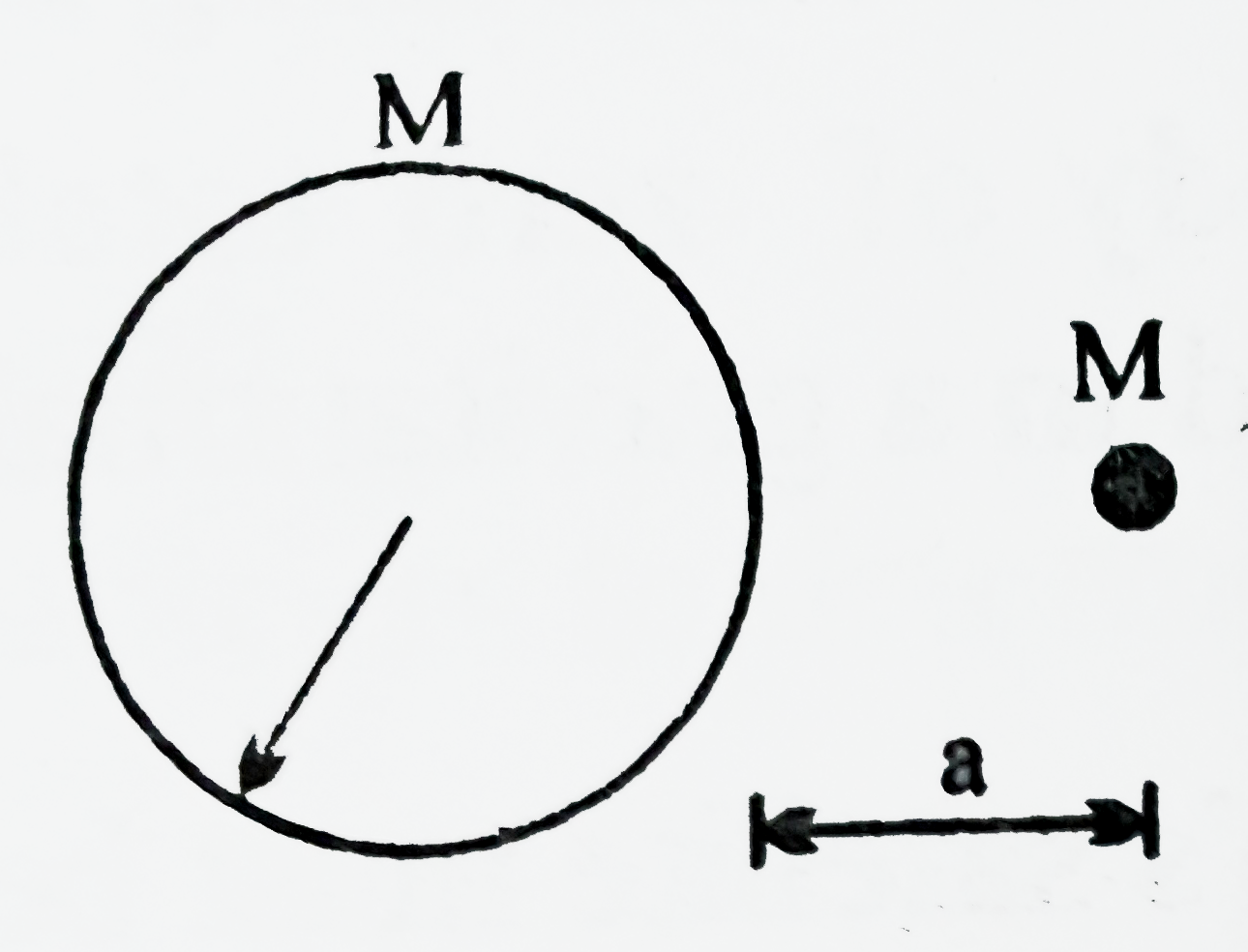A spherical planet far out in space has a mass and diameter . A particle of mass m falling freely near the surface of this planet will experience an accelertion due to gravity which is equal to
The correct Answer is:B
By definition : for the earth.
For the planet,
and
Topper's Solved these Questions
- GRAVITATION BOOK - MARVEL PUBLICATIONCHAPTER - GRAVITATION EXERCISE - TEST YOUR GRASP -2
20 Videos
- ELECTROSTATICSBOOK - MARVEL PUBLICATIONCHAPTER - ELECTROSTATICSEXERCISE - TEST YOUR GRASP
20 Videos
- INTERFERENCE AND DIFFRACTIONBOOK - MARVEL PUBLICATIONCHAPTER - INTERFERENCE AND DIFFRACTIONEXERCISE - TEST YOUR GRASP
20 Videos
Similar Questions
A man of mass m is standing on the floor of a lift. Find his apparent weight when the lift falling freely. Take acceleration due to gravity equal to g.
View SolutionA planet has twice the mass of earth and of identical size. What will be the height above the surface of the planet where its acceleration due to gravity reduces by 36% of its value on its surface ?
View Solution
Knowledge Check
A spherical planet far out in space has a mass M0 and diameter D0. A particle of mass m falling freely near the surface of this planet will experience an acceleration due to gravity which is equal to
AGM0/D2B4mGM0/D20C4GM0/D20DGmM0/D20A spherical planet far out in space has a mass M0 and diameter D0. A particle of mass m falling freely near the surface of this planet will experience an accelertion due to gravity which is equal to
AGM0/D20B4mGm0/D20C4GM0/D20DGmM0/D20A spherical planet far out in space has mass 2M and radius a. A particle of mass m is falling freely near its surface. What will be the acceleration of that particle ?
AGMa2B3GMa2C2GMa2D4GMa2
The mass of a planet is twice the mass of earth and diameter of the planet is thrie the diameter of the earth, then the acceleration due to gravity on the planet's surface is
View SolutionA particle of mass M is at a distance a from surface of a thin spherical shell of equal mass and having radius a.

View SolutionThe mass and diameter of a planet have twice the value of the corresponding parameters of the earth. Acceleration due to gravity on the surface of the planet is
View SolutionThe mass and diameter of a planet have twice the value of the corresponding parameters of the earth. Acceleration due to gravity on the surface of the planet is
View SolutionThe mass and diameter of a planet have twice the value of the corresponding parameters of earth. Acceleration due to gravity on the surface of the planet is
View Solution
